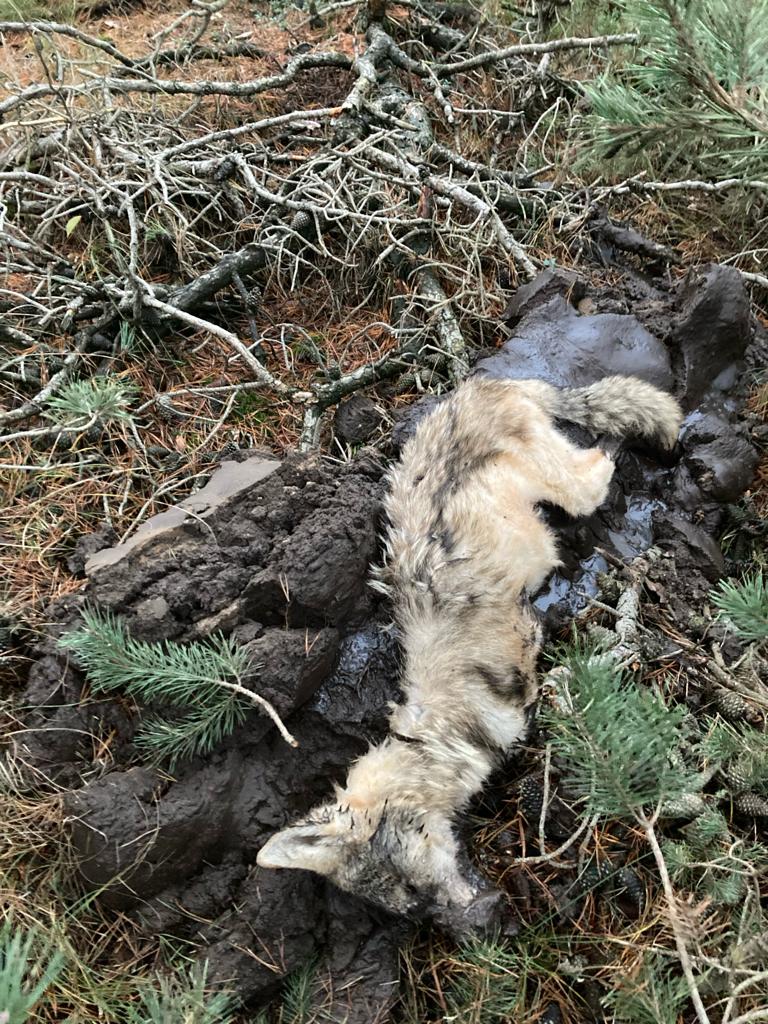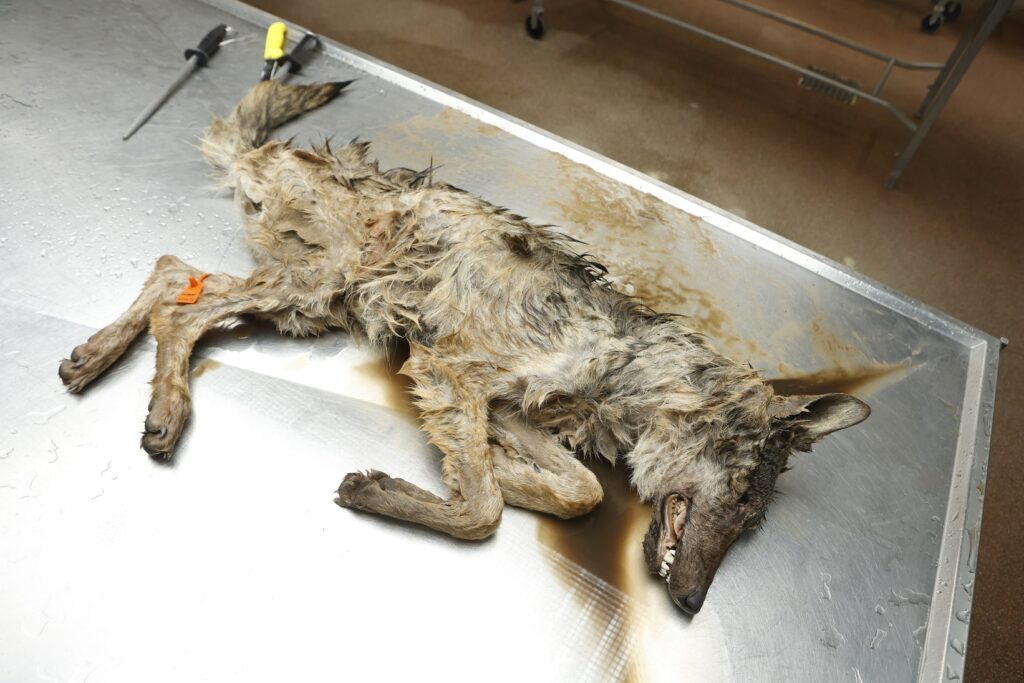Wolf died of a bacterial infection

In November 2023 a young wolf was found dead in the mud in the woods of the Northern Veluwe, a nature reserve in the centre of the Netherlands. The animal could not free itself and died. It was brought to the Dutch Wildlife Health Centre (DHWC) in Utrecht where it was investigated by ecologists from Wageningen Environmental Research (WENR) and pathologists from the DWHC.
The young male wolf had meagre fat reserves and poor muscling, indicative of long-term poor body condition. In addition, the wolf was jaundiced: all internal organs were yellow and there was yellow inflammatory exudate in the abdomen. The icterus was caused by extensive inflammation of the peritoneum and the lymph nodes caused by the bacterium Staphylococcus pseudintermedius. Canids are the usual host of this bacterium which, whilst normally not causing disease, can act as an opportunistic pathogen in weakened animals.

It is not clear if the wolf became stuck in the mud as a result of attempting to drink or cool off. In its weakened state it was apparently unable to drag itself out of the mud. This is the first wolf in the Netherlands to have been shown to have died of a bacterial infection.
DNA analysis performed by WENR shows the identity of the wolf to be: GW3875m. This is an unknown male individual that had not previously been recorded and is likely to be a descendent of the North Veluwe pack.



